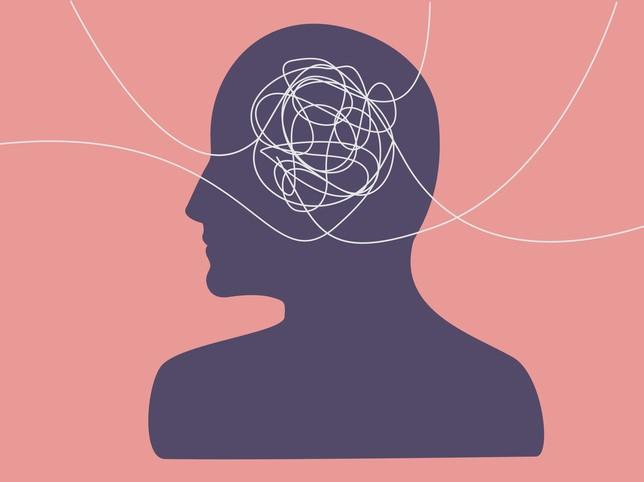The phrase “mental health crisis” has become all too familiar on university campuses. Once a taboo topic, it now dominates conversations among students, faculty and administrators. And rightly so – the statistics are staggering, with 38 per cent of undergraduate students experiencing depression, 55 per cent facing anxiety and 29 per cent reporting stress disorders, according to a UAE study.
For years, student mental health struggles have been framed as personal failures or isolated cases. But the reality is systemic, driven by academic culture, societal pressures and institutional blind spots. If we are serious about reversing this trend, we must move beyond individual coping mechanisms and critically examine the environments in which these struggles arise.
Loneliness behind a screen
Another silent contributor to student mental health struggles is loneliness. While universities promise rich social experiences, the reality often falls short. The rise of online learning, particularly post-Covid, has reduced opportunities for students to form meaningful connections. For introverts and those from disadvantaged backgrounds, this isolation can be even more profound.
Social media exacerbates this issue, intensifying personal insecurities. Caught in a cycle of curated online perfection, students compare their lives to the filtered realities on their screens. This constant exposure to idealised portrayals of success, beauty and happiness fosters feelings of inadequacy and self-doubt. Excessive social media use is linked to higher levels of anxiety, depression and declining self-confidence, according to research, as students struggle to keep up with unrealistic standards.
The academic pressure cooker
University is often seen as a stepping stone to success but for many it feels more like a pressure cooker. Grades and mental health are locked in a toxic cycle – poor academic performance fuels anxiety, which in turn hinders learning. The overwhelming pressure to perform leaves students mentally exhausted, yet the system offers little room for recovery. Burnout becomes inevitable.
- Building a culture of care to support students’ mental health
- How to help a student in mental health distress
- Three ways to support the post-pandemic mental health of Generation Z
Relentless competition only makes things worse. Many students feel defined by their last grade, pushing them into surface-level cramming rather than genuine learning. We’ve all been there – flipping through slides the night before an exam, absorbing facts without truly understanding. It feels productive in the moment but the knowledge rarely sticks, leaving students both drained and unfulfilled.
The irony? Many of these students are bright, eager learners who, in a different system, would thrive in an environment that values curiosity over rote memorisation.
Societal expectations weigh heavily
Many students carry the burden of expectations – to excel academically, secure a prestigious job and maintain an active social life. For those from low-income backgrounds, financial stress compounds mental health struggles, making it even harder to meet these demands.
Research shows that students’ exposure to harmful or protective social determinants of mental health is shaped by money, power and resources – all influenced by policy choices. Socio-economic status, food security, discrimination and access to healthcare profoundly impact student well-being, yet these factors are often overlooked in mental health discussions.
Practical solutions for real change
If universities are serious about mental health, they must take concrete, actionable steps:
1. Flexibility
Reducing academic overload can make a significant difference. Saint Louis University cut 10 per cent of its medical curriculum and introduced electives –leading to an 85 per cent drop in depression and a 75 per cent decrease in anxiety.
Institutions should also offer flexible scheduling, allowing students time for family, cultural practices or self-care. Additionally, providing the option of online or in-person learning can ease academic strain while reinforcing that universities prioritise student well-being.
2. Resilience training and anonymous support
Many students often arrive with harmful mindsets – all-or-nothing thinking (“If I don’t pass this exam, I’m a failure”), catastrophising and perfectionism. Resilience training programmes can help dismantle these patterns, teaching cognitive reframing, mindfulness and time management skills.
However, not everyone feels comfortable seeking help. A virtual anonymous pen pal system, where students share their struggles and counsellors respond with coping strategies, could offer a stigma-free avenue for support.
3. International/national student communities
Students are more likely to open up to those who share their struggles. Universities should fund student-led mental health communities that organise events where students can connect, share experiences and support one another.
4. Community service
Heal through helping. Helping others can be a powerful way to heal oneself. Volunteering or engaging in acts of service – whether for the underprivileged or within your own community – provides a sense of connection, assurance and understanding. In turn, volunteers often experience stress relief and a lighter mental burden, knowing they are contributing to the well-being of others facing similar challenges. The feeling of satisfaction that comes from making a difference can be deeply healing.
As Stanford neuroscientist James Doty explains: “When we care and nurture, it affects our physiology positively.”
During Covid-19, the UAE’s Mental Support Line volunteers helped thousands, demonstrating the impact of community-driven mental health initiatives. Expanding such efforts could further normalise seeking help and reduce stigma, creating a culture of collective support.
The youth shape the future, yet their mental health remains neglected. Universities must go beyond acknowledgment and implement policies that tackle systemic causes.
But this is not solely their burden alone. Parents, policymakers and employers must foster a culture that prioritises well-being over relentless achievement.
Yet kindness alone won’t solve the crisis. We need systemic change. This mental health crisis is not inevitable – it is the result of choices. And by addressing the root causes, we can build a future where students not only survive but thrive.
Let’s make those choices count.
Sadaf Majeed is a consultant and Umamah Rehman and Maria Faisal are second-year medical students at Dubai Medical College for Girls.
If you would like advice and insight from academics and university staff delivered direct to your inbox each week, sign up for the Campus newsletter.




comment